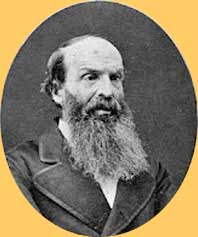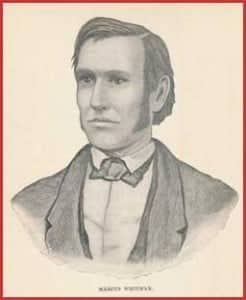Preacher McIntyre
by David T. Myers
In his young years in Scotland, his classmates called him “preacher McIntyre.” That was because his early years were subject to serious impressions. Growing up, he became an apprentice to a shoemaker in Glasgow, Scotland. This “job” was followed by the task of shepherding sheep in the Highlands of the country. John McIntyre would never forget the spiritual lessons of that calling, even many years later.
At the age of twenty years, he made a public confession of faith in Jesus Christ as Lord and Savior. It was said that his faith was tested by trying circumstances. One such example of those circumstances was, after his marriage, he emigrated to North Carolina. On the long ocean voyage, they buried overboard their first born child. In fact, unnamed domestic affliction and trouble rolled over the couple greatly, until they moved to South Carolina.
In attending camp meetings of the Great Revival, for a while he doubted his conversion. But God was at work in his life and he was able to recover his hope of eternal life. Pressing on in his spiritual life, he began to desire serving the Lord as an ordained minister. He was now in his early fifties, and friends opposed his desire. After all, he was not in his twenties. He had only a limited education. But John persisted in a laborious study and application of the requisite courses of theology. As a result, he was licensed to preach on September 25, 1807. For the next thirty years, he supplied pulpits at Presbyterian congregations – in Philadelphia, Bethel, Lumber Ridge, and at St. Paul.
His death took place on this day, November 11, 1852, at the age of one hundred and three years of age!
It was said that he was per-eminently devout, prayerful, vigilant of the interests and welfare of the church, was ready for every emergency, and shrank from no duty of religion. About the only thing he questioned was why God should delay so long to call him home!
Words to Live By:
Scripture reminds us in Romans 12, 1 Corinthians 12, and Ephesians 4, that every believer has at least one spiritual gift. We are to speak or serve our God with that spiritual gift. See 1 Peter 4: 10, 11. Have you discovered your spiritual gift yet? And are you developing it by education and experience? Have you dedicated it to the Lord of the church? And are you doing it, to God’s glory and the benefit of the church to which you belong? “Preacher McIntyre” discovered his gift late in his life, and despite the doubt of many of his church friends, developed it, dedicated it to the Lord Jesus, and did it to God’s glory and the good of the church.




![Rev. Dr. Daniel Baker [17 August 1791 - 10 December 1857]](https://thisday.pcahistory.org/wp-content/uploads/2012/08/bakerDaniel.jpg)